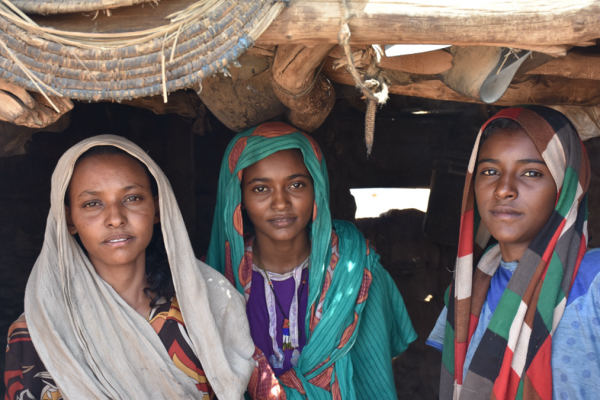CORRECTION: African Development Bank approves $19.85 million grant for crisis response to the most vulnerable in Sudan’s conflict areas

The Board of Directors of the African Development Bank Group (www.AfDB.org) has recently approved a $19.85 million grant over two years to support a humanitarian and resilience operation in Sudan, with a strong focus on improving livelihoods of vulnerable populations and easing the impact of the ongoing conflict on communities and infrastructure.
In the short term, the Crisis Response for Women and Affected Communities in Sudan project, co-financed by the International Committee of the Red Cross (ICRC) will train and mobilize frontline workers such as health professionals, water and sanitation specialists, and market facilitators. The project will also restore up to five health facilities and four emergency centers in conflict zones, as well as rehabilitate water and energy systems in urban and rural settings.
The financing also facilitates delivery of emergency food aid, such as lentils and sorghum and other staples, like tea leaves and sugar. Some 60,000 people will receive farming inputs like fertilizers and seeds this year alone. Cash grants to support livelihoods, with a focus on women and their dependents, as well as survivors of gender-based violence will also be provided.
Overall, the project will benefit 1.5 million Sudanese, or 265,000 households, of which a majority are led by women. The project will also benefit internally displaced (IDPs) and hosting communities. The Bank categorizes the Crisis Response for Women and Affected Communities in Sudan project as “Category 1” on its Gender Marker System, indicating the principal objective of the project directly addresses gender equality and women’s empowerment.
“Peace, security and stability are urgently needed for Sudanese communities to reach their full potential,” Dr. Beth Dunford, the Bank’s Vice President for Agriculture, Human and Social Development, said about the project.
“The Crisis Response for Women and Affected Communities in Sudan project will help restore social services and economic opportunities to some of the country’s most vulnerable communities. The Bank financing will also strategically promote inclusive and resilient economic activities, intentionally contributing to peacebuilding” she added.
The Bank’s Transition Support Facility (TSF) is financing the bank’s share of the project. The Facility, introduced in 2008, provides additional concessional resources to countries facing situations of fragility and conflict.
This Bank crisis response operation, implemented in collaboration with the ICRC, goes beyond short-term humanitarian interventions to invest in long-term resilience and sustainable development with a focus on women and affected communities. It adopts a humanitarian-development-peace nexus approach which blends urgent humanitarian relief with efforts to lay the foundation for long-term development and peace. While addressing the conflict with a rapid response focused on food security and other livelihood support, the project’s focus remains on early recovery for affected communities and displaced populations.
The International Committee of the Red Cross will draw on its deep operational experience and long-standing presence in Sudan and work through existing staffing and infrastructure. The project focuses on scaling up sustainable solutions, including through strengthening capacities of the Sudanese Red Crescent Society. As part of its mandate, the ICRC will also advance respect for International Humanitarian Law, which remains a cornerstone of humanitarian response in conflict-affected areas, thereby also protecting civilian infrastructure and assets.
To date, an estimated eleven million Sudanese have been displaced internally, and another 3.8 million — mostly women and children — have been forced to flee to neighboring countries. Supporting Sudan’s stabilization requires coordinated and joint efforts of combined immediate relief laying the foundation for inclusive long-term development and lasting stability. Policy dialogue will be key to ensuring women’s participation in conflict prevention and crisis management.
Distributed by APO Group on behalf of African Development Bank Group (AfDB).



